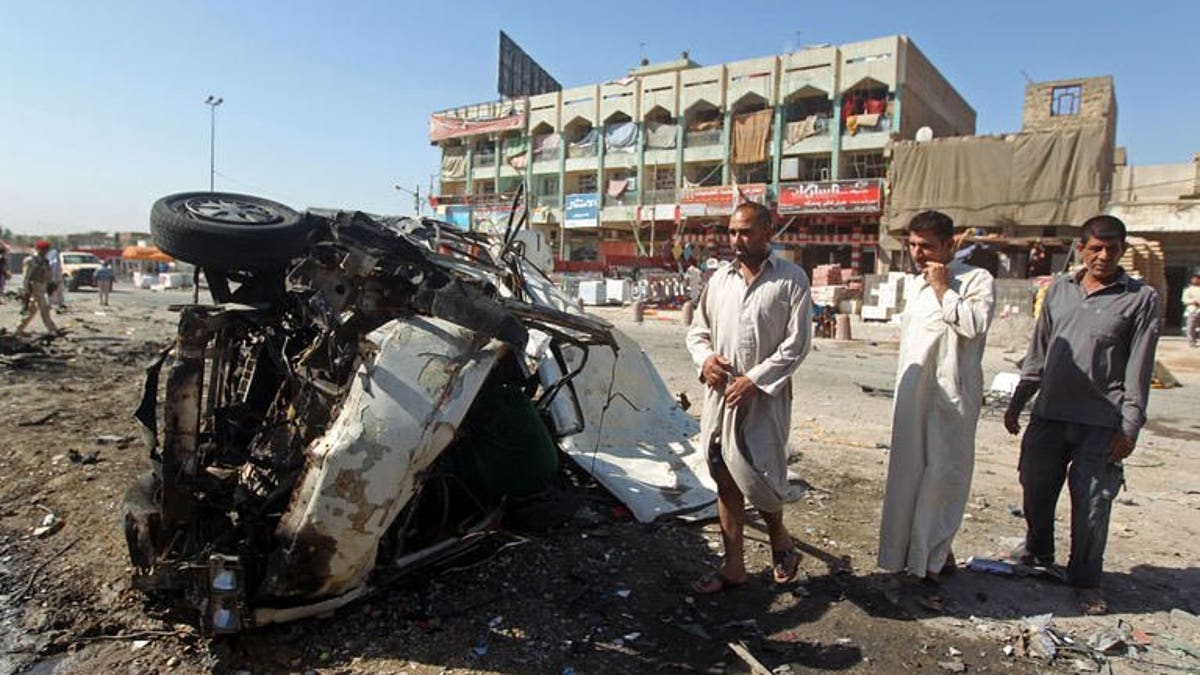
July 29, 2013 shows Iraqis inspecting the site of a car bomb explosion in the impoverished district of Sadr City in Baghdad. A series of apparently coordinated bombings struck Baghdad on Tuesday, killing 12 people, while five others died in violence elsewhere in Iraq, officials said. (AFP/File)
BAGHDAD (AFP) – A series of apparently coordinated bombings struck Baghdad on Tuesday, killing 12 people, while five others died in violence elsewhere in Iraq, officials said.
Iraq is struggling to contain the worst violence to hit the country since 2008, when it was emerging from a bloody sectarian conflict.
Security forces have launched major operations targeting militants in multiple provinces including Baghdad, during which they have arrested scores of people and seized weapons and explosives, according to the defence ministry.
A car bomb and a roadside bombing each exploded in three different areas of the capital, while another car bomb hit a fourth, killing 12 people and wounding more than 40 overall.
In Fallujah, west of the capital, gunmen armed with automatic weapons killed a policeman, while a bombing at a housing complex near Khanaqin, northeast of Baghdad, killed two people and wounded four.
Security forces also killed two militants driving explosives-laden vehicles in restive Diyala province, north of Baghdad, the sources said.
Violence has increased markedly this year, especially since an April 23 security operation at a Sunni anti-government protest site that sparked clashes in which dozens died.
Protests erupted in Sunni-majority areas in late 2012, amid widespread discontent among Sunnis who accuse the Shiite-led government of marginalising and targeting their community.
Experts say Sunni anger is the main cause of the spike in violence this year.
About 1,000 people were killed in Iraq during July, according to figures compiled by the UN and the Iraqi government, making it the deadliest month for the country in five years.
Illustrating the severity of the violence, UN figures indicate more than twice as many civilians were killed in Iraq during the first six months of 2013 as died in violence in Afghanistan during the same period.
